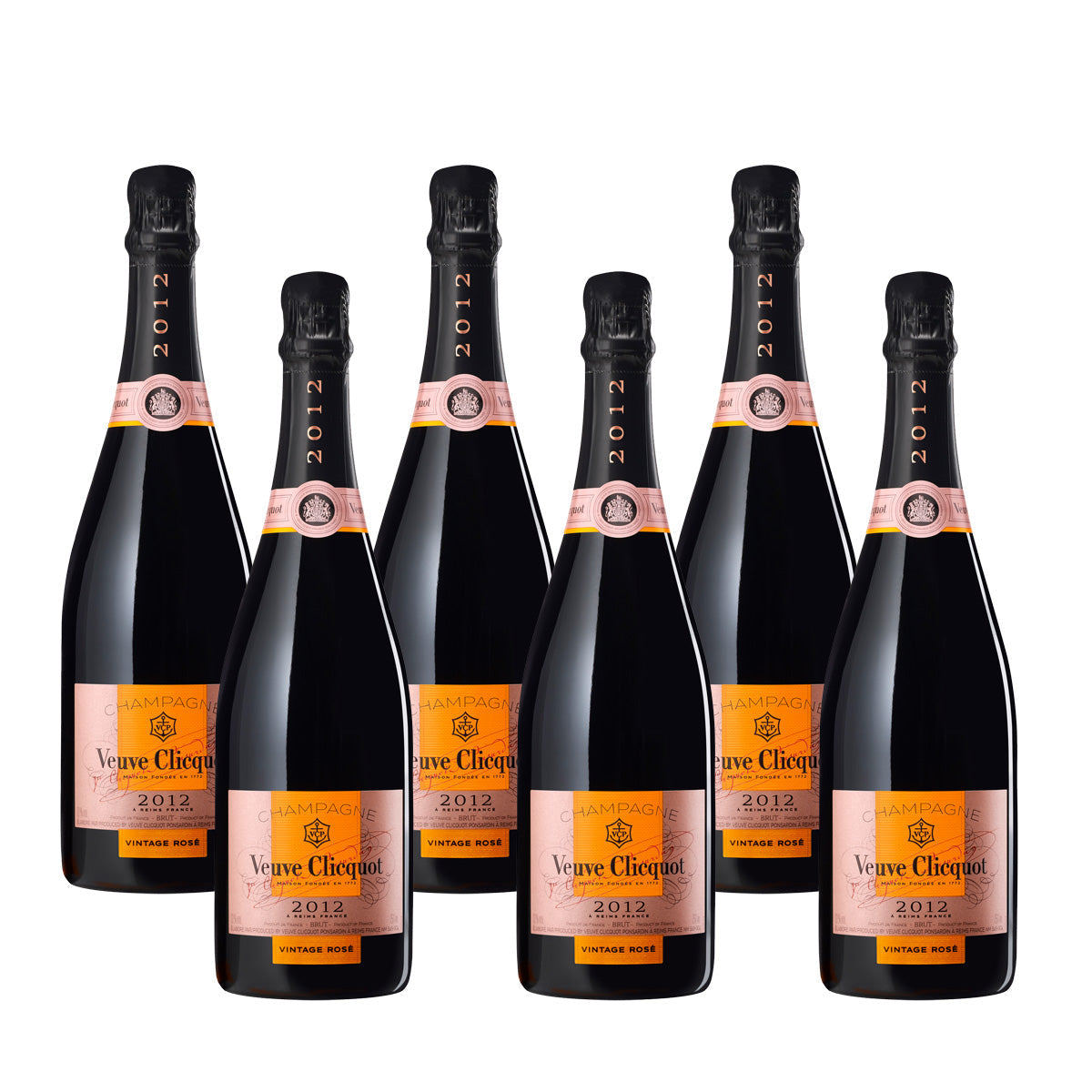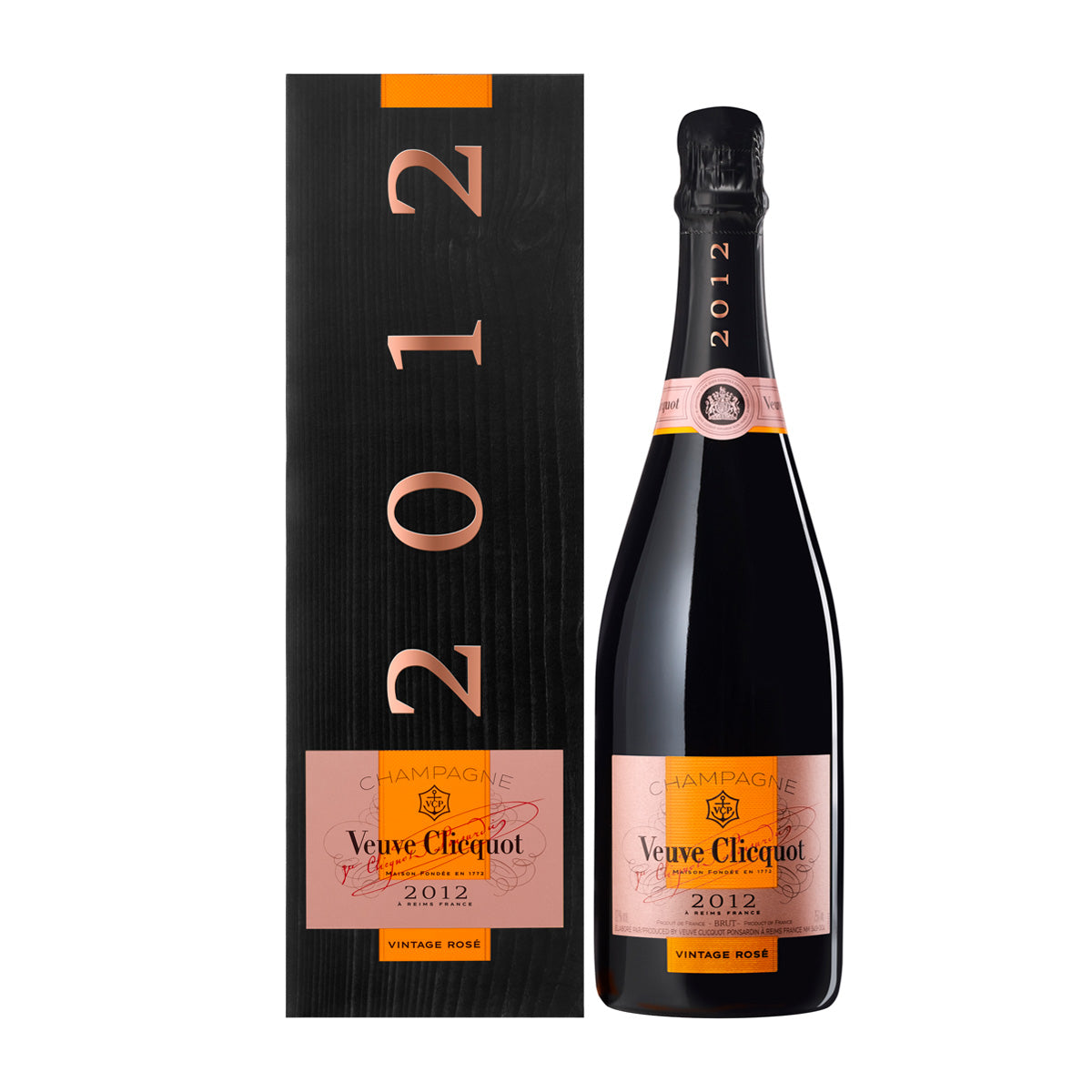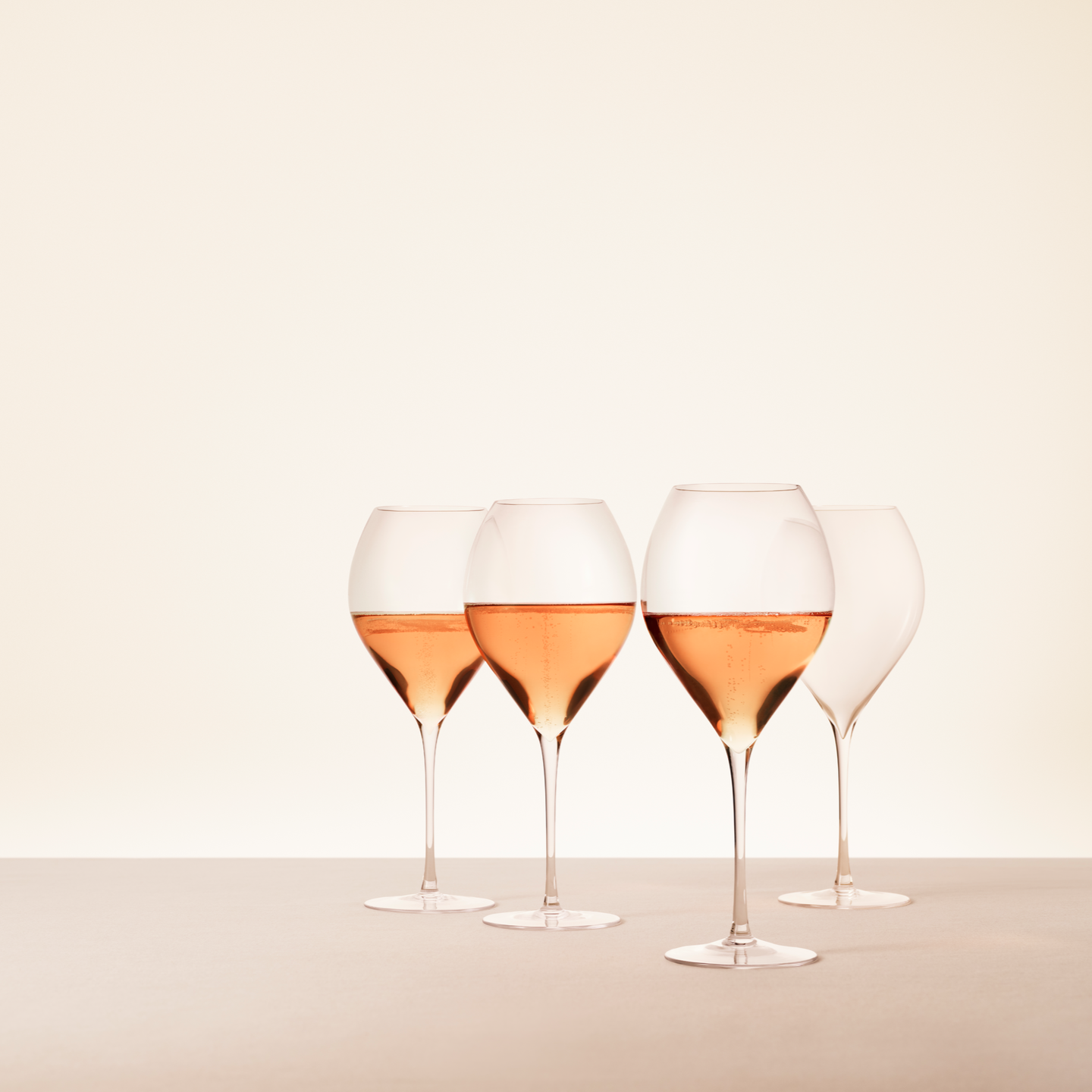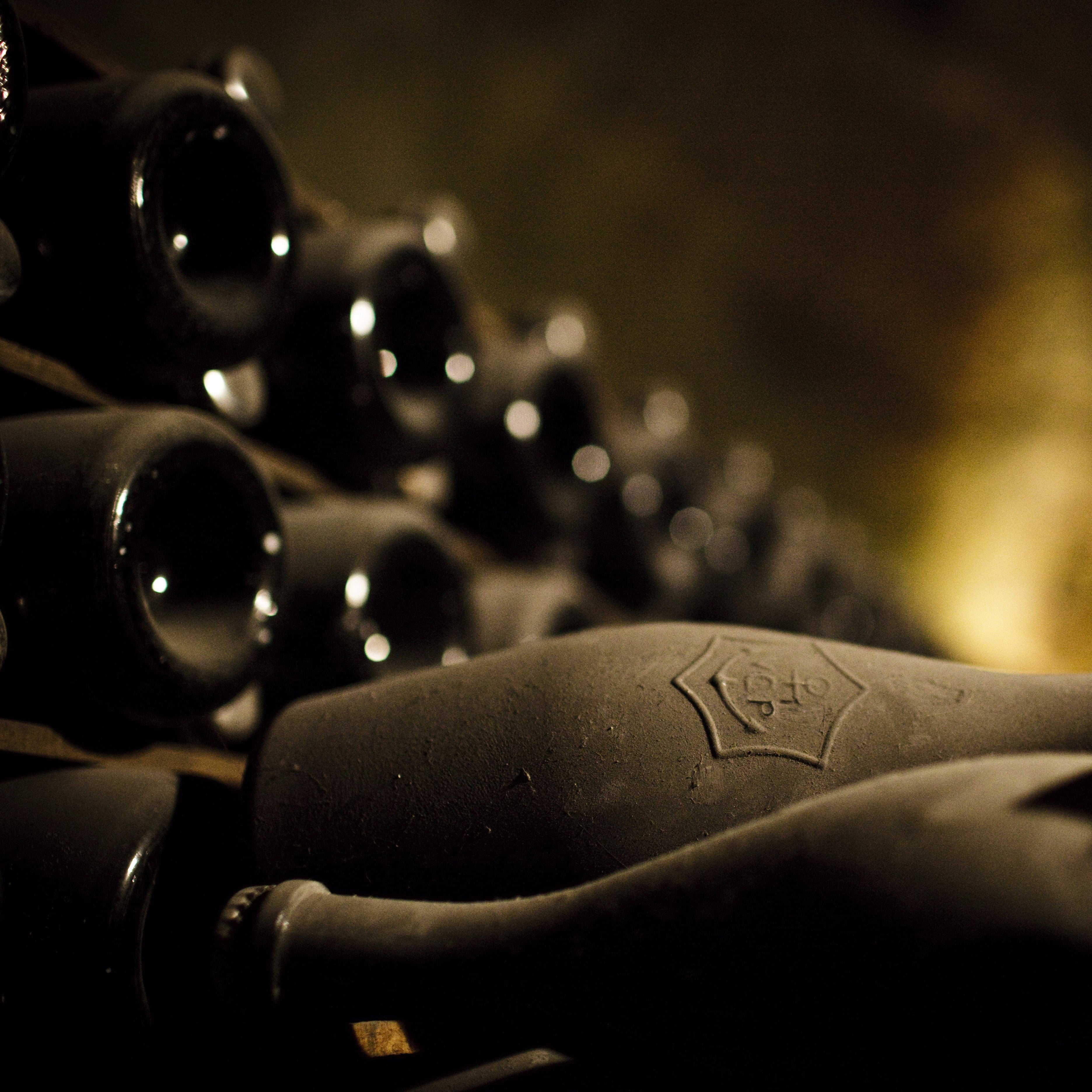Veuve Clicquot
Veuve Clicquot Vintage Rosé 2012 Case of 6
Veuve Clicquot Vintage Rosé 2012 Case of 6
In 1810, Madame Clicquot invented the first Vintage Champagne, in 2012 Veuve Clicquot declared the 66th vintage of the Maison. Vintage 2012 is the unique expression of prodigious harvest, despite an extremely challenging climate throughout the year. The result is a gastronomic Champagne for wine lovers.
HOW TO ENJOY
HOW TO ENJOY



Appearance: In the glass, Vintage Rosé 2012 enchants with its deep rose
color and copper hues.
Aroma: The pure and intense nose develops to reveal fresh aromas of red
fruit, wild strawberry and blueberry.
Taste: The palate is powerful and voluminous, with an attack that is
distinct and clear. It unfolds with initial aromas of luscious red fruit,
strawberry and Morello cherry. Next to arrive are dense notes of noble tannins,
their velvety, silky caress is the perfect counterpoint to Vintage Rosé 2012’s
spicy saffron and peppery notes. Rounding out the experience is an indulgent
aroma of refined pastry, with a slight touch of almond. Never one to be shy,
Vintage Rosé 2012 is persistent and vivacious, with an impressively long finish
that culminates in a final fresh hint of red fruit and cherry.
Begin with a rich, meaty seafood dish – we think lobster or langoustine would be the
perfect shade for this rosé. Embrace the champagne’s fruitiness with succulent
pink meats. Veal or duck would pair beautifully – cooked just the way you like.

Reims, Champagne France. Veuve Clicquot champagne has always been a creative act, requiring unique expertise grounded in a love for Pinot Noir and the art of aging. From harvest to shipment, Veuve Clicquot is inspired by the House’s longstanding motto, “only one quality, the finest.” Madame Clicquot’s legacy shines on throughout the House with passion and optimism.
WORTH A TRY
EXCEPTIONALLY CRAFTED CHAMPAGNES
Cognac tradition. Craftmanship. Creativity. Centuries of expertise. Discover the full Hennessy Cognac range and enjoy a unique cognac tasting experience. Could Richard Hennessy and his eldest son James possibly have imagined at the end of the eighteenth century that, one day, their cognac would have travelled the world over, ignoring borders and challenging traditions?



